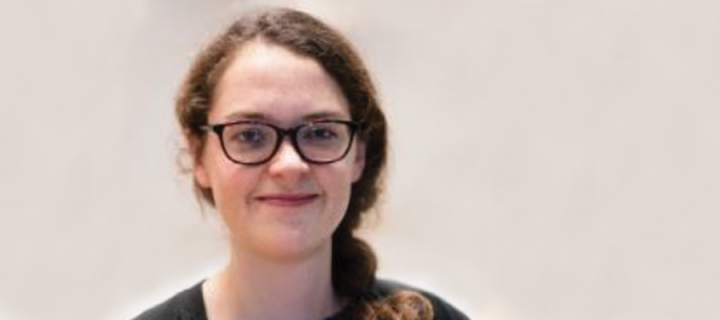BLOG: Data is driving health and social care innovation & inclusion of older people in research
Rose Penfold reflects on her hopes for data-driven innovation to improve health care.

By Rose Penfold | Medical doctor and PhD student
I am a medical doctor, specialising in Geriatrics and General Internal Medicine. Health policy has always been one of my interests, thinking about how we might change the ways we deliver care for older people. Bringing together my medical practice and that interest I’m currently undertaking a Multimorbidity PhD fellowship at the Usher Institute, funded by the Wellcome Trust. Using routine clinical and national audit data my research is looking at the complex relationships between delirium (acute confusion), multimorbidity (multiple long term conditions), and outcomes, in patients hospitalised due to emergency conditions, such as a hip fracture.
I went to medical school in Oxford and did my first few years of clinical training in London, then undertook a Master of Public Health in Harvard and spent a year working in national health policy.
No such thing as a typical day at work…
In clinical medicine, no day is ever the same – and it seems the same is true in research too! I typically split my time between a research office at the Edinburgh Royal Infirmary, and a hot desk in the BioQuarter, to benefit from interaction with my PhD supervisors, clinical colleagues and with other researchers using data to study multiple long term conditions.
It's very exciting to have some early results from my first piece of analysis, looking at the associations of delirium in patients admitted with a hip fracture with adverse outcomes following the hospital admission. This work has identified a number of further questions and project ideas, which I hope to answer using larger, linked datasets during my PhD. Alongside my research, I’m doing some training to enhance my use of the R programming language to analyse more complex datasets and better present my findings.
Vision for data-driven innovation
My main hope is that emerging data-driven innovation partnerships in the region can bring together knowledge and ways of working that have previously been siloed in their various sectors - academia, health and social care, industry - and have not always involved the public. I believe that the outputs from the various partnerships have the potential to be much bigger than the sum of their individual parts.
In my clinical and academic experience so far, I have always benefitted hugely from understanding different approaches to some of the most complex problems in healthcare and have friends working in different areas of clinical practice, research, industry and data science. I think that the data-driven innovation programme in health and social care can catalyse these conversations and allow collaborative ideas to grow.
What I’m particularly passionate about in my work
Inclusion of older adults with complex problems is a real interest of mine. Data-driven research offers a means of involving older adults, and of generating new knowledge for a group of people who have historically been excluded from research studies due to issues surrounding capacity, consent, and the ability to participate.
I believe that routine clinical data – data which is already collected when patients attend the GP or hospital – has unharnessed potential to generate new insights into conditions such as frailty, delirium, and multimorbidity. These insights can really change the ways we deliver care for individual patients, and on a large scale.
Exciting links
All data is interesting (perhaps I am biased) - and becomes more interesting the longer you delve into it! The most exciting aspect of my project is the ability to link data using DataLoch to bring together information from different sources. For example, when a patient attends hospital in an emergency and has delirium on admission, it will now be possible to identify potential risk factors for the condition, or associations with outcomes afterwards. Without the ability to bring together data from different sources, determining these relationships would be difficult or impossible.
A data hero
It’s tricky to choose a data hero – there are lots to choose from, many of which are hardly known despite the incredible feats they achieved against great adversity. One of them is Rear Admiral Dr Grace Hopper (1906-1992), a US-based computer pioneer and naval officer who made trailblazing contributions to the development of computer languages. This is my favourite quote from her:
The most damaging phrase in the language is ‘it has always been done that way’

